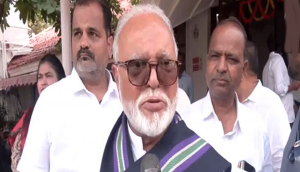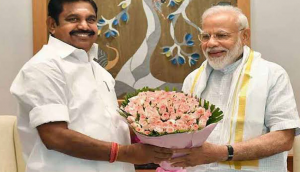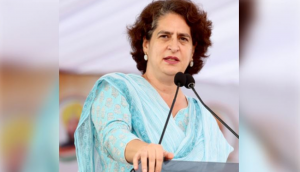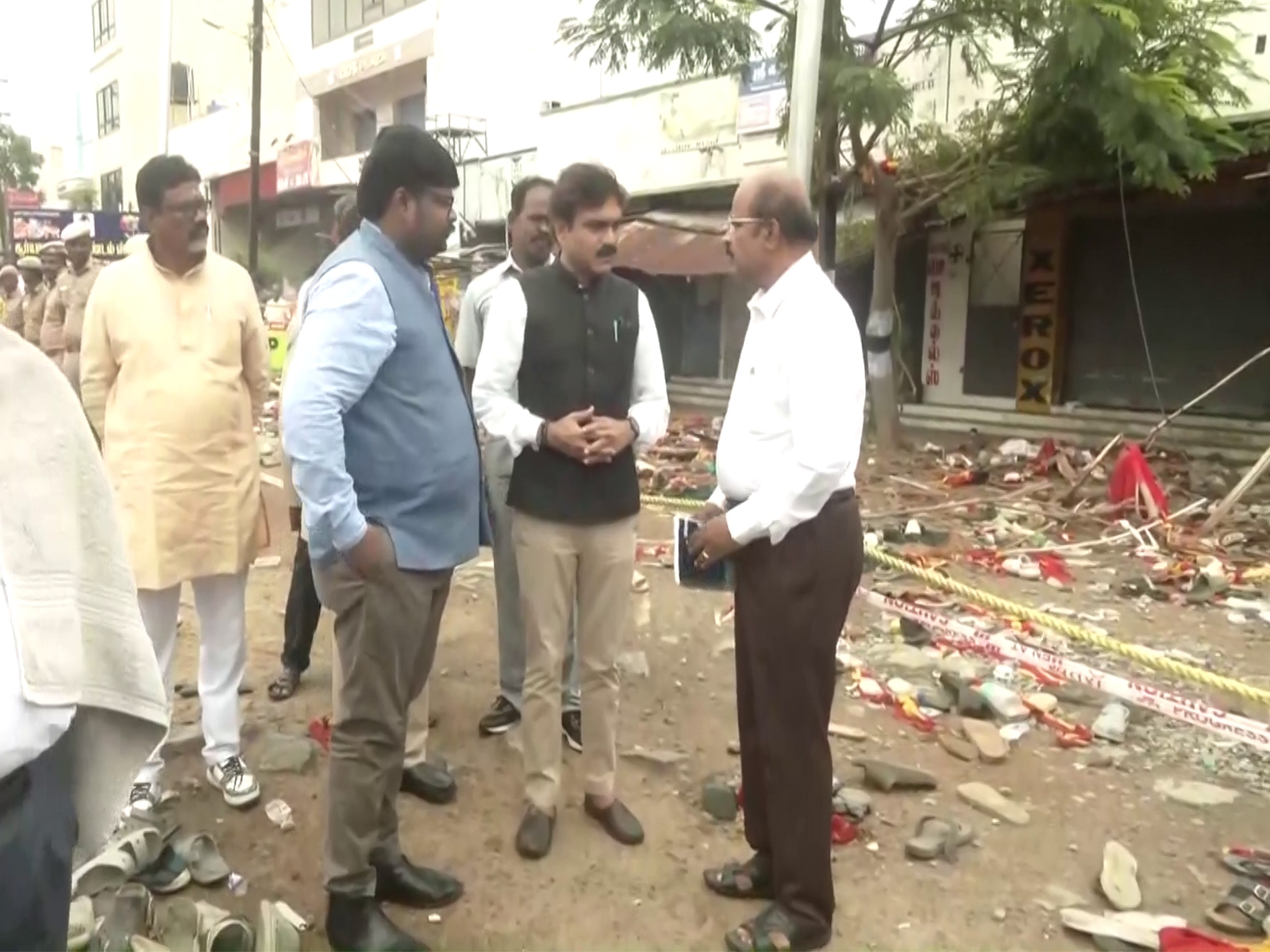SP-BSP deal: BJP could lose Phulpur & Gorakhpur if Mayawati transfers votes

Arch-rivals Samajwadi Party (SP) and the Bahujan Samaj Party (BSP) have arrived at an understanding for the upcoming bypolls to the Phulpur and Gorakhpur Lok Sabha seats in Uttar Pradesh.
On Sunday, BSP's in-charges for the two areas announced the party's support for the SP candidates in the bypolls.
Our workers want to eliminate BJP & that is why the members of Bahujan Samaj Party (BSP) have decided to extend support & vote for Samajwadi Party (SP) candidate Nagendra Singh Patel in Phulpur by-poll: Ashok Gautam, BSP Zonal Coordinator, Allahabad pic.twitter.com/R2vRFY6Lx5
— ANI UP (@ANINewsUP) March 4, 2018
BSP (Bahujan Samaj Party) Gorakhpur in-charge Ghanshyam Chandra Kharwar declared support to Samajwadi Party (SP) candidate Praveen Kumar Nishad in upcoming Gorakhpur by-poll pic.twitter.com/4f1YSou3ho
— ANI UP (@ANINewsUP) March 4, 2018
Speaking to the media on Sunday, BSP supremo Mayawati didn't directly admit to the alliance but said that her party supporters will vote for the candidate best placed to defeat the BJP. In return, the SP is likely to back a BSP candidate to the Rajya Sabha. The two parties will also help each other in the Vidhan Parishad elections in the state.
The understanding is said to be the direct initiative of SP chief and former UP chief minister Akhilesh Yadav. He has in the past expressed his willingness to have an alliance with the BSP. Interestingly Yadav's erstwhile ally, the Congress is not part of this alliance and it has already put up candidates in the two Lok Sabha seats.
However, Yadav has cleverly roped in the small but influential NISHAD party, which has a significant presence in Gorakhpur, the bastion of UP CM Yogi Adityanath. Praveen Kumar Nishad son of NISHAD party chief Sanjay Nishad will be contesting on an SP ticket from the seat. This appears to be an astute move as the Nishad/Mallah or boatmen community have been a significant support base for Adityanath, both politically as well as at the Gorakhnath Mutt. Akhilesh has also brought in the Peace Party led by Dr Mohammad Ayub, which has some support among Ansari Muslims in Eastern UP.
Akhilesh's aim appears to be to create a broad Bahujan alliance by bringing together the SP's Muslim-Yadav base and BSP's Dalit-Muslim base and wooing other backward communities, who had shifted to the BJP in the last elections. Keeping this in mind, the SP has fielded a Mallah, Praveen Nishad, in Gorakhpur and a Kurmi, Nagendra Pratap Singh Patel, in Phulpur. This isn't Yadav's first attempt at wooing Nishads. On the eve of the Uttar Pradesh elections, his government had included the community in the Scheduled Caste list. The matter is still sub-judice.
Interestingly, the Congress is not part of this arrangement and the party has put up candidates for the bypolls. Perhaps the calculation is that the Congress could potentially take away a part of the BJP's Upper Caste votes especially as the party has fielded Brahmins in both seats.
On Monday, the Rashtriya Lok Dal also announced its support for the SP in the bypolls.
Can the alliance defeat the BJP?
If the voting pattern in the bypolls is a repeat of the 2014 Lok Sabha elections, the BJP would be unbeatable as the party got over 50% votes in both Phulpur and Gorakhpur.
Phulpur vote share
BJP: 52.4%
SP: 20.3%
BSP: 17.1%
Congress: 6.1%
Gorakhpur vote share
BJP: 51.8%
SP: 21.8%
BSP: 17%
Congress: 4.4%
But the SP-BSP-NISHAD-Peace Party-RLD alliance could win both the seats if the BJP's popularity is where it was during last year's Vidhan Sabha elections and if the allies transfer their votes effectively.
Phulpur has five Assembly segments: Phaphamau, Soraon, Phulpur, Allahabad West and Allahabad North. BJP won all these seats in the Assembly elections, except the Soraon reserved seat which was won by its ally Apna Dal. If we add the votes garnered by all the parties in these five seats, we get:
BJP + Apna Dal: 436196 (43%)
SP: 239080 (23.6%)
BSP: 226370 (22.3%)
Congress: 54166 (5.3%)
NISHAD party: 2974 (0.3%)
RLD: 3220 (0.3%)
Total: 1013812
It must be remembered that the SP and Congress contested the Assembly polls in alliance. Among these 5 seats, SP contested four and the Congress contested one, Allahabad North.
If one adds the votes of the SP, BSP, NISHAD Party and RLD, the total is marginally above the BJP by a few percentage points. This does not include the Congress' votes.
BJP + Apna Dal: 43%
SP+BSP+NISHAD+RLD: 46.5%
Congress: 5.3%
The case of Gorakhpur is similar. The five segments in the Gorakhpur Lok Sabha seats are Caimpiyarganj, Pipraich, Gorakhpur Urban, Gorakhpur Rural and Sahajanwa. BJP won all the five seats in the Vidhan Sabha elections. If we add the votes cast in these five seats, we get:
BJP : 452495 (40.1%)
SP: 187143 (16.6%)
BSP: 217710 (19.3%)
Congress: 120273 (10.7%)
NISHAD: 61616 (5.5%)
Peace Party: 2252 (0.2%)
RLD: 9321 (0.8%)
Total: 1126902
Here again the combined vote share of the SP-BSP-NISHAD-Peace Party-RLD alliance is marginally more than the BJP.
BJP: 40.1%
SP+BSP+NISHAD+Peace Party+RLD: 42.4%
Congress: 10.7%
One must note that the SP had contested three seats and the Congress contested two among these constituencies.
X-factors
Of course, such a simple calculation may not be able to predict how people in Phulpur and Gorakhpur vote on March 11. There are a number of X-factors that one must keep in mind:
- A perfect transfer of votes seldom takes place in alliances but if at all there is a party which has the capability to transfer most of its votes, it is the BSP.
- It needs to be seen how well the Congress does and whose votes it ends up splitting. Conventional wisdom would say the Congress would mostly cut into the SP's vote share, but the fact that the party has put up Brahmin candidates in both the seats, could harm the BJP as well. The BJP candidate in Gorakhpur is also a Brahmin.
- Don-politician Atiq Ahmed will be contesting from Phulpur as an Independent candidate. A former Lok Sabha MP from Phulpur, he wields considerable influence in the area. His presence will directly harm the SP's prospects.
- The Hindu Yuva Vahini had backed a number of Independent candidates in and around Gorakhpur during the Assembly elections. They are unlikely to work against the party in the bypolls as the prestige of their leader Yogi Adityanath will be at stake.
Implications
Whoever wins in the bypolls will have a term of just a little over a year, with Lok Sabha elections due in 2019. But the results would be significant. If BJP wins despite the SP-BSP alliance, it would mean that the party's popularity in UP is intact and it will in all likelihood sweep UP in the 2019 general elections.
But if the SP-led alliance manages to pull of an upset it will be significant in a number of ways.
- First, it would mean that the BJP's popularity in the Hindi heartland is decisively on the wane, especially if one views it along with the party's resounding defeat in the Lok Sabha bypolls Alwar and Ajmer in Rajasthan recently.
- Second, it would provide the Opposition a blueprint for aligning to defeat the BJP. The message it would send to these parties is that if SP and BSP can come together, any rivalry can be overcome.
- Third, it would mean that the BJP's elaborate social coalition in UP is breaking and Akhilesh Yadav has succeeded in winning over a section of the non-Yadav OBC communities like Nishads and Kurmis.
- Fourth, it would create the base for a broad Muslim, Dalit and OBC alliance, which could potentially derail the Hindu consolidation that is essential for the BJP.
- Fifth, it would put pressure on the Congress to cede more ground to regional parties and be prepared to play second fiddle in several states.







![BJP's Kapil Mishra recreates Shankar Mahadevan’s ‘Breathless’ song to highlight Delhi pollution [WATCH] BJP's Kapil Mishra recreates Shankar Mahadevan’s ‘Breathless’ song to highlight Delhi pollution [WATCH]](https://images.catchnews.com/upload/2022/11/03/kapil-mishra_240884_300x172.png)

![Anupam Kher shares pictures of his toned body on 67th birthday [MUST SEE] Anupam Kher shares pictures of his toned body on 67th birthday [MUST SEE]](https://images.catchnews.com/upload/2022/03/07/Anupam_kher_231145_300x172.jpg)






